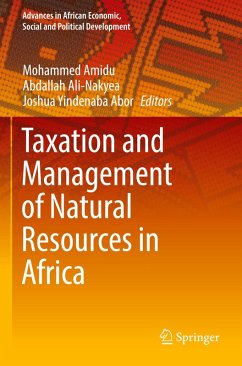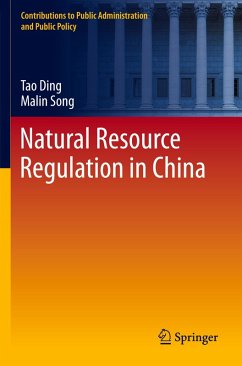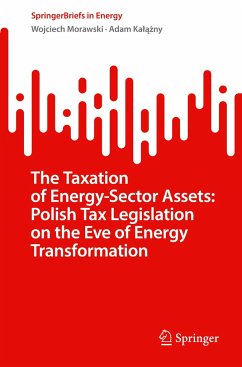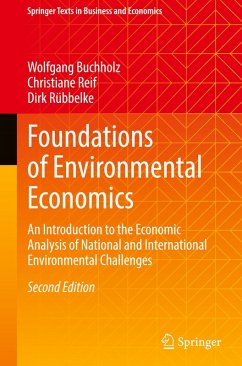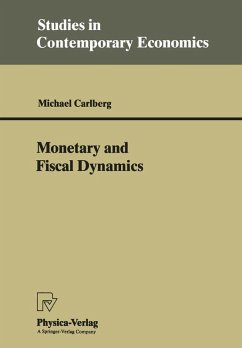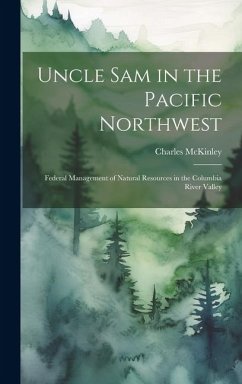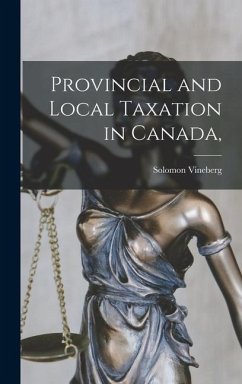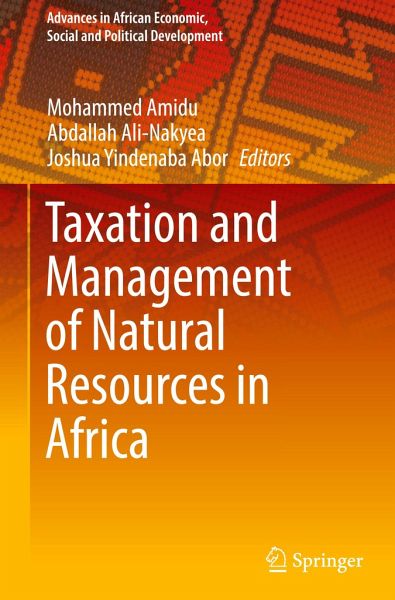
Taxation and Management of Natural Resources in Africa

PAYBACK Punkte
83 °P sammeln!
This book offers a comprehensive examination of the fundamental concepts and principles crucial to the taxation and management of natural resources, specifically tailored to the unique challenges faced by developing African countries. It delves into the key instruments that comprise a resource tax policy, providing invaluable insights into the tax reforms necessary to maximize economic rent for African nations.Written by experts in the field, this book explores the potential application of effective revenue management principles by African governments to achieve desired developmental outcomes....
This book offers a comprehensive examination of the fundamental concepts and principles crucial to the taxation and management of natural resources, specifically tailored to the unique challenges faced by developing African countries. It delves into the key instruments that comprise a resource tax policy, providing invaluable insights into the tax reforms necessary to maximize economic rent for African nations.
Written by experts in the field, this book explores the potential application of effective revenue management principles by African governments to achieve desired developmental outcomes. It covers a wide range of topics, including socio-political risks, ethical dilemmas, accountability and transparency, resource rent and capital gains taxes, tax administration and reforms, taxation of oil and gas revenue, environmental taxation, globalization's impact, and the promotion of inclusive development. Designed for scholars, tax professionals, and individuals interested in natural resources management and revenue mobilization strategy in Africa, this book bridges the gap between theory and practice, providing valuable insights and recommendations for sustainable and responsible management of Africa's rich natural resources.
Written by experts in the field, this book explores the potential application of effective revenue management principles by African governments to achieve desired developmental outcomes. It covers a wide range of topics, including socio-political risks, ethical dilemmas, accountability and transparency, resource rent and capital gains taxes, tax administration and reforms, taxation of oil and gas revenue, environmental taxation, globalization's impact, and the promotion of inclusive development. Designed for scholars, tax professionals, and individuals interested in natural resources management and revenue mobilization strategy in Africa, this book bridges the gap between theory and practice, providing valuable insights and recommendations for sustainable and responsible management of Africa's rich natural resources.





